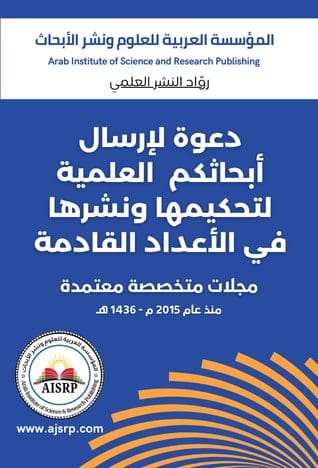The strategy of conflict of interpretations in the poem
(dream of an empty night) by the poet Ahmed Abdel Moaty Hijaz
Mahmoud Khalif Khudair Obaid Hayani
Faculty of Administrative Technology || Mosul – Northern Technical University || Iraq
Tab title
There is no doubt that the interpretive experience is the experience of meaning, and connotations, each approach to the creative text, suggests several readings start from an interpretive strategy through which the text interacts with the interpreter; so that some kind of agreement on meaning or fusion of horizons, and according to this agreement or fusion of horizons there is an understanding of the self Since the text is a lazy machine that always needs a new reading that works to stimulate the text, and produce new meanings, it is based on a conflict between the different meanings and connotations, and can not be said to be the last reading. Of meaning now In the light of these conflicts of interpretation, we have chosen a poem by the poet Ahmed Abdel Moaty Hijaz, and whenever we approach the text proposes a new meaning, the poem revolves in the orbit of a variety of meanings including loss, depression, weakness and strength , Love, dimension, alienation, immigration, immobility, change, etc. The meanings opened by the hermeneutic experience are a struggle for different endless interpretations, because the hermeneutic language focuses on various intentions (author, text, and administrator), but what maintains its continent is Text strategy, semantic field boundaries for each word or phrase in Poem. Keywords: Conflict of interpretations, Text intent, Fusion horizon, Neutrality.
استراتيجية صراع التأويلات في قصيدة (حلم ليلة فارغة) للشاعر أحمد عبد المعطي حجاز
محمود خليف خضير الحياني
الكلية التقنية الإدارية الموصل || الجامعة التقنية الشمالية || العراق
Tab title
لاشك أن التجربة التأويلية هي تجربة المعنى، والدلالات، فكل مقاربة للنّص الابداعي، تقترح عدة قراءات تنطلق من استراتيجية تأويلية يتفاعل عن طريقها النص مع المؤول؛ لكي يحدث نوعا من الاتفاق على المعنى أو انصهار للآفاق، وبموجبه هذا الاتفاق أو انصهار الآفاق يكون هناك فهم للذات المؤول أو انشاء معنى جديد لا يمكن عدّه تابعا للنص أو المؤول، ولما كان النص آلة كسولة تحتاج دائمة الى قراءة جديدة تعمل على تحفيز النّص، وانتاج معان جديدة فإنه على أساس ذلك يحدث صراعا بين المعاني والدلالات المتنوعة، والمختلفة، ولا يمكن القول إنها القراءة الاخيرة للمعنى النصي، إنما هي قراءة مقبولة لا أكثر ولا اقل، وعلى ضوء هذه الصراعات في التأويلات، فإننا اخترنا قصيدة للشاعر أحمد عبد المعطي حجاز، وكلما قاربنا النص يقترح علينا معنى جديدا، فكانت القصيدة تدور في فلك معان متنوعة منها الضياع، والكآبة، والضعف، والقوة، والحب، والبُعد، والاغتراب، والهجرة، والجمود، والتغيير… الخ من المعاني التي فتحتها التجربة التأويلية على صراع للتأويلات المختلفة التي لا تنتهي، لأن اللغة التأويلية تركز على مقصديات متنوعة (المؤلف، والنص، والمؤول)، ولكن ما يحافظ قاريتها هي استراتيجية النص، وحدود الحقل الدلالي لكل كلمة أو عبارة في القصيدة. الكلمات المفتاحية: صراع التأويلات، مقصدية النص، انصهار الأفق، المحايثة.
Post Link:
https://blog.ajsrp.com/?p=18466



